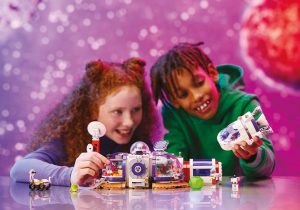
Robot designs primary resource
Discover the robots of the future and where we may see them
This Design and Technology primary resource introduces children to different types of robot. Discover the robots of the future and where we may see them in everyday life. What makes robots ‘learn’? How can robots help children in hospital? Which robot is designed to be a ‘co-pilot’ in future cars?
Pupils will learn about how technology has been developed to create robots that help humans with everyday tasks in our National Geographic Kids’ Robot designs primary resource sheet.
The teaching resource can be used in study group tasks for evaluating robot designs and what these products are capable of; as a printed handout for each pupil to review and annotate, or for display on the interactive whiteboard using the information included in the resource for class discussion.
Activity: Ask children to evaluate as a class, or small in groups, the designs of the different robots; taking into account the way that they look, their purpose, their size, their names, their functionality and how useful they may be. They could further research the robots mentioned, to find out how they have developed since the resource was created, and what kind of successes they’ve had. Extend older pupils by asking them to carry out a SWOT analysis on their chosen robot design. Pupils could design their own robots, using the examples in the resource sheet to get them thinking about visual designs and purpose.
N.B. The following information for mapping the resource documents to the school curriculum is specifically tailored to the English National Curriculum and Scottish Curriculum for Excellence. We are currently working to bring specifically tailored curriculum resource links for our other territories; including South Africa, Australia and New Zealand. If you have any queries about our upcoming curriculum resource links, please email: schools@ngkids.co.uk
This Culture primary resource assists with teaching the following Design and technology objectives from the National Curriculum:
The national curriculum for design and technology aims to ensure that all pupils: critique, evaluate and test their ideas and products and the work of others
National Curriculum Key Stage 1 Design and technology objectives:
When designing and making, pupils should be taught to:
Evaluate:
- explore and evaluate a range of existing products
- evaluate their ideas and products against design criteria
Design:
- design purposeful, functional, appealing products for themselves and other users based on design criteria
- generate, develop, model and communicate their ideas through talking, drawing, templates, mock-ups and, where appropriate, information and communication technology
National Curriculum Key Stage 2 Design and technology objectives:
When designing and making, pupils should be taught to:
Evaluate:
- investigate and analyse a range of existing products
- evaluate their ideas and products against their own design criteria and consider the views of others to improve their work
- understand how key events and individuals in design and technology have helped shape the world
Design:
- use research and develop design criteria to inform the design of innovative, functional, appealing products that are fit for purpose, aimed at particular individuals or groups
- generate, develop, model and communicate their ideas through discussion, annotated sketches, cross-sectional and exploded diagrams, prototypes, pattern pieces and computer-aided design
This Robot designs primary resource assists with teaching the following Technologies Early level objective from the Scottish Curriculum for Excellence:
- I can respond to the work of artists and designers by discussing my thoughts and feelings. I can give and accept constructive comment on my own and others’ work.
Scottish Curriculum for Excellence First level Technologies objectives:
- I can analyse art and design techniques, processes and concepts, make informed judgements and express considered opinions on my own and others’ work.
- By exploring and using technologies in the wider world, I can consider the ways in which they help.
- I can work with others to generate, discuss and develop imaginative ideas to create a product of the future.
- By exploring current news items of technological interest, I have raised questions on the issues and can share my thoughts.
Scottish Curriculum for Excellence Second level Technologies objectives:
- When exploring technologies in the world around me, I can use what I learn to help to design or improve my ideas or products.
- I can investigate how an everyday product has changed over time to gain an awareness of the link between scientific and technological developments.
Scottish Curriculum for Excellence Third level Technologies objective:
- From my studies of technologies in the world around me, I can begin to understand the relationship between key scientific principles and technological developments.
Scottish Curriculum for Excellence Fourth level Technologies objective:
- I can examine a range of materials, processes or designs in my local community to consider and discuss their environmental, social and economic impact, discussing the possible lifetime cost to the environment in Scotland or beyond.
Download primary resource
More Like

Satellite images hint at lost Mayan city

Out-of-this-world LEGO® Space sets!

Enter The Eurekas now!









LEAVE A COMMENT
THANK YOU
Your comment will be checked and approved shortly.
WELL DONE,
YOUR COMMENT
HAS BEEN ADDED!
COMMENTS
CUSTOMIZE YOUR AVATAR